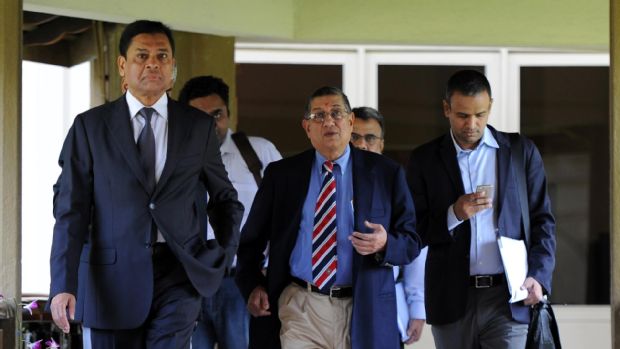Just imagine: if Labour wasn’t so in thrall to economic bodies and their predictions, we might have a radical left of our own

‘When you study the successful experiences of transformative movements,” said Pablo Iglesias of Podemos, the new party of the Spanish left, “you realise that the key to success is to achieve a connection between the reality you have diagnosed and what the majority actually feels.”
This statement is more than bleedin’ obvious. It is crying out for a response that includes an expletive and Sherlock Holmes. Yet that’s what Iglesias has built: a successful, transformative movement. And in Greece, that’s what Syriza has built too, as demonstrated on Sunday, when a country that only a few years ago saw the rise of the fascist Golden Dawn party, went to the polls with a majority supporting the radical left. That, to a degree, is also what the yes campaign built in Scotland. So we know it is possible, to diagnose a reality that so many people actually feel. It should be possible, also, to decipher how these movements did it.
What they and others like them – the successful German campaign for free higher education, for example – have in common, first of all, is that they reject the prevailing economic verities. Conventional political debate in the UK has parties thrashing out positions, which they then justify and defend with reference to the International Monetary Fund or the Office for Budget Responsibility or the Bank of England. Economic projections, or rather the bodies who make them, stand as the final authority on what constitutes a good decision.
Grant Shapps, the Tory party chairman, provided a bland but elegant example of this on Sunday, when touting the election message – “Conservatives or chaos” – around the BBC. “The IMF says we can be the biggest economy in Europe in 15 years, but only if we stay on the road to growth.” Here, the IMF is presented as authority, godhead and visionary. It can see into the future. It cannot be questioned. In this worldview, party differences are simply practical, problem-solving ones: who can best do what the IMF wants? Who understands growth and how to deliver it? It is ironic that this has become the burning question for democracy, when history shows that growth is pretty unrelated to which party is in government.
Politicians are cast in a fairly minor role by this rationale. They take on a sort of valet position, there to arrange things the way the economy needs them. It is extremely difficult as this kind of politician to make any diagnosis of reality that people might recognise. The last thing you want to do when your hands are tied is to describe a situation – low wages for instance, high housing costs, unliveable lives – that demands action.
One of the fascinating things about the Greek election campaign has been listening to Syriza candidates reply to questions about what to do if the European Central Bank (ECB) becomes angry, or the markets panic. Miranda Xafa, a former IMF board member and supporter of the centrist Potami party, said in an emollient voice (in a Radio 5 Live interview), “I am sure the ECB will be patient.” The gulf between Syriza and all the other parties was suddenly, dramatically clear: the leftwing party no longer thinks of the ECB as its dad. It does not seek its patience. It will not take its terms at any price. This is the necessary precondition for credible leftism: a rejection of the bodies, mostly central banks and attendant forecasting agencies, currently in charge. You can’t build a new game to their rules.
The backstop position for centrists (I call it the centre, but many of its assumptions are what we once called hard right) is that any change invites instability, which is enough to undo the prosperity that all the sensible people are working towards. Whatever happens, money must not be frightened away; investors must not be threatened; job creators must remain secure. During the Scottish referendum this argument took the form of CEOs, standing in front of HQs, proclaiming their intention to leave Scotland forever should it fall into the wrong hands. A leftwing party that cannot face down the risks raised by investors will never be able to make a believable case for anything; their argument is a tinderbox, ready to ignite at the first fiery word from Alan Sugar.
PFI is a classic example of the failings of the UK left: every party agrees these contracts were a rip-off – the coalition is still signing them, while fulminating about Labour’s track record; Labour thinks radicalism means admitting that perhaps they weren’t a good idea. Nigel Farage (again on Radio 5) said to my face that Ukip would “get hospitals out from under the yoke of PFI”. This means tearing up the contracts, doesn’t it? What else could it mean? There is only one other group in the country with an idea so radical, and that’s The People vs PFI.
Why would Labour never dare? Because when people call it anti-business, it hasn’t got the apparatus to cope. Farage dares partly, I think, because he has no intention of carrying it out; but also because, in a bizarre twist to the new multiparty politics, Ukip is often saying something similar to the Greens: business interests aren’t everything. That’s a reality that the majority feels, but that you never hear described; that’s how the Greens overtook the Liberal Democrats, while all eyes were on Ukip.
Back in Greece, exit polls suggest Syriza is on course to form a majority government. We don’t yet know whether or not this spells Grexit, or what it all means for the eurozone. But we do now know, before anybody starts diagnosing anything, the most important thing about building a successful transformative movement: that it is possible. Eminently.


